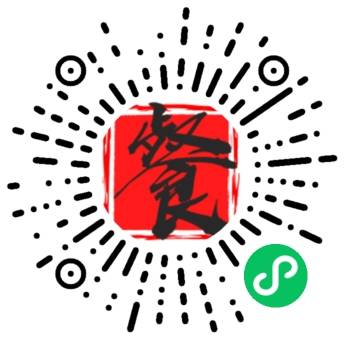▲Come here to see a different F&B world!
Bump FBIF to the top & stay tuned.
Author:Niamh Michail
Source: FoodNavigator
Another month, another insect start-up? Maybe, but Danish firm Insekt KBH’s apple, ginger and cricket juice is different: it’s sustainable not only thanks to its ingredients but because it’s produced in Copenhagen’s self-sustaining urban food loop.
Co-founded by molecular biologistJakob Lewin Rukov and business developer Philip Price,thestart-up’s circular economy came about when Price and Rukov were approached by Bioark, a Copenhagen-based company that works with local restaurants and small food companies to develop self-sustaining food loops that combine bio-inspired technologies with local nutrient streams.
Bioark helped Insekt KBH operate in a sustainable food loop that involves coffee, mushrooms, tomatoes and crickets (see image).
Lewin Rukov is also the founder of Bugging Denmarkan urban cricket farm where theinsects arefed partly on mycelia substrate provided by Beyond Coffee, a firm that collects used coffee grinds to grow oyster mushrooms, and partly on apple pulp leftover from Insekt KBH own apple juice production.
The cricket droppings are then re-used as plant fertiliser by urban garden and vegetable producer TagTomat. In this way, different forms of manufacturingresidue are ‘upcycled’ in scalable ecosystems that produce fresh food all year.
Although the crickets in Insekt KBH’s juice are currently sourced from Holland (commercial insect farming is not yet legalised in Denmark) the company hopesto ultimately source its crickets from Bugging Denmark. For the minute, the farm organises workshops, lectures and tours showing the general public and private companies how to set up their own insect farms or urban ecosystems.
“It is a two-legged exercise, so to speak.Insekt KBH sells and commodifies, Bugging DK educates and shares vital knowledge,” said Price.
“We do not regard edible insects solely as a business, but as a green movement towards a better world. We want to provide a solution to over-consumption and food waste.”
And cities, with their high density populations and concentrations of food companies, restaurants and supermarkets, are an ideal place to find these solutions.
“We are trying to take advantage of the fact that in an urban environment there is a large concentration of companies that in their own specific, highly specialised ways contribute to sustainable development,” Lewin Rukov told FoodNavigator.
Umami Flavour Notes
The juice itself has no added sugar or preservatives andis flavoured with apple, ginger, lemon and 15 crickets – thenameFEMTEN Fårekyllingermeans 15 crickets in Danish while KBH is a common abbreviation for Copenhagen, orKøbenhavn.
“The umami flavour of the crickets rounds off the inhibited sharpness or ‘bite’ from the ginger. Our next flavour is going to be apple, beetroot and either buckthorn or aronia,”Price said.
Aronia berries, also known as black chokeberries, are grown extensively across Eastern Europe, Scandinavia and Russia, and are high in antioxidants.
Insekt KBH is currently at the go-to-market stage – it sells in retail outlets around Copenhagen – but the start-up is still working on improving the product.
Technical Challenges
The cricket powder creates a certain amount of visible sediment in the juice. Could this be off-putting for European consumers who are not used to the idea of eating insects?
“The sediment is not necessarily a consumer issue,”said Price.”Referring to contemporary health and organic or natural food trends, sediment is actually a preferred thing as it exhibits authenticity. Obviously, we are striving towards turning the sediment as least invasive as possible.”
Co-founders Jakob and Philip. © Insekt KBH Insekt KBH recently won a500,000 DKK (€67,000)innovation grant from theInnovation Fund Denmark, some of whichwill go to addressing this.
It also has plans to start a research project with the prestigious Danish Technological Institute (DTU) with the aim of “optimizing the technical features of the juice”, and will be launching a crowdfunding campaign in April or May this year.
The current manufacturing capacity of several tonnes per month is “ample”for current demand, Price said, but the pair are planning to expand by 2018 withHolland, Sweden and Norway earmarked attractive export markets.
“Obviously our juice is in itself not going to end the overarching climate and food challenges,” he added.”However, it is a gateway [product] for people in the Western hemisphere to learn to love and embrace edible insects as a natural part of their diet. Then we can really do something. It all starts with the individual consumer’s mindset. We truly believe we can play a vital role in that regard.”
Source:FoodNavigator
Link: http://www.foodnavigator.com/Trends/Alternative-proteins/What-connects-crickets-coffee-mushrooms-in-a-sustainable-urban-food-loop-This-Danish-start-up-s-protein-juice
/ Read More/
23 New Food Technology Startups in 2016
Edible Insects Are Crawling to a Plate Near You
Insect Food, China’s Next Wave of Food Industry Trend?
/ Subscription Guide /
Reply “trends“, “rankings“to getF&B trends, reports and rankings
Click the Menu “FBIF” to view “Agenda“, “Speakers“, “Partners” and other On Site Activities
Reply “attendee“, “photo“, “news” to get related information. For other key words, pls reply “keywords“
Bump FBIF to the top & stay tuned.
/WeChat Groups /
Long Press this QR Code to follow“FBIF“.
Reply number “3” to join inCEO,R&D,Marketing,Packaging,Functional Foods,Dairy,Beverage,Snacks, etc. WeChat groups(Group members include seniors from Nestle, Coca-Cola, PepsiCo, AB-InBev, Yili, Mengniu, Master Kong and Nongfu Spring etc.)
▲follow us and”Sticky On Top“
原创文章,作者:网络转载,如若转载,请注明出处:https://www.qiyu88.com/188446.html















